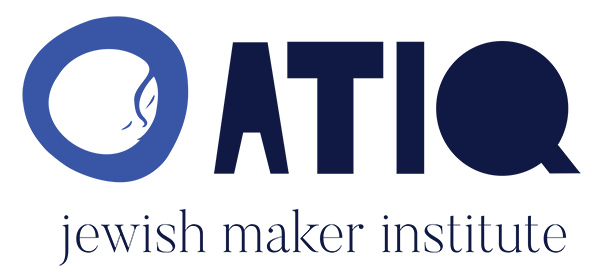A Blessing for the Work of Our Hands - An interpretation of Psalm 90:17 / Elizheva Hurvich
As a third-year Rabbinical student, I was hoping that through the Maker Kollel I might be able to more “embody” my studies, turning what feels largely mental and spiritual work into tangible objects. How might I embrace and transform my learning?
My hevruta suggested that we begin with a blessing for our meetings. At the time, I was reading Psalms and found just the line for us -- Psalm 90:17. The twelve Hebrew words are a plea that our hands bring beauty into the world, and that this work is then “established.” I have been fascinated by the Hebrew letters, deconstructing the parts of the letters to what is essential, making a few “stamps” that could be turned in different ways to turn into the Alef Bet.
During the Maker Kollel, I started painting some of the Psalms. It seemed only natural that this final project be the blessing, “embodied” here. The Hebrew word for hands appears twice in this Psalm, with a suffix (-nu) that makes it first person plural-- in other words, “Our Hands.” So for this, I invited my classmates to “add their hands” to this blessing.
Process
This project originated in a desire to bring the Torah portion Vayeshev (Gen 38) to life, revealing the meeting of Yehudah and Tamar. Letters rising off the page.
I imagined my hands and two “Yuds”- two letters representing hands, the Hands of a Creator, making letters, words, ideas and realities come alive.
Hands hold broken fragments. Somewhere in the shadows and light, there is a whole.
“Breaking down” the Hebrew letters into elemental shapes that repeat and reconfigure, I made stamps for “vav,” Yud” and Chaf.
Letters and images taking on color, “dancing” on a page.
Interpretations of Psalms 3 and 2.
Prompts for Interaction
This line of text is now set to a melody.
It can be used as a way to bless our hands,
a prayer for the opening of maker’s time!





